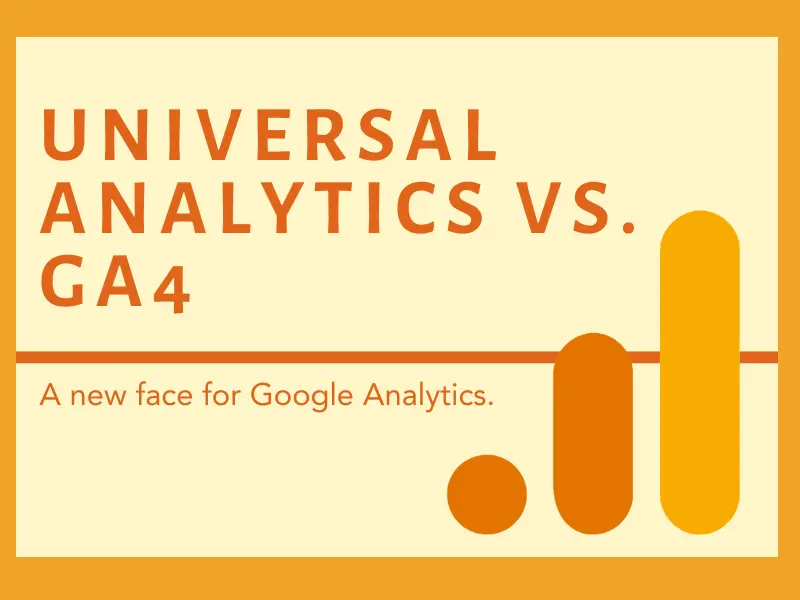The Latest from AdVentures
The Evolution of Google Analytics

In the evolving landscape of digital marketing, staying ahead of the curve is not just an advantage; it’s imperative. With the recent introduction of Google Analytics 4 (GA4), marketers are presented with a powerful tool that promises to redefine how we understand and engage with our audience. However, transitioning from the familiar Universal Analytics (UA) to GA4 requires a thorough understanding of the changes and their implications, particularly for digital marketing and social media companies. We’ll dive into Google Analytics 4 vs. Universal Analytics to help you get up to speed.
Google Analytics 4 vs. Universal Analytics
Google Analytics 4 represents a significant shift from its predecessor, Universal Analytics. While UA focuses primarily on website-centric metrics, GA4 takes a holistic approach, aiming to provide a more comprehensive view of user interactions across various platforms and devices. This shift aligns with the modern consumer journey, which often spans multiple touchpoints, including websites, mobile apps, and social media platforms.
One of the key differences between GA4 and UA is the emphasis on event-based tracking rather than page views. In GA4, events play a central role in tracking user interactions, allowing marketers to capture a wider range of actions, such as video views, scroll depth, and social interactions. This granularity provides deeper insights into user behavior, enabling marketers to better understand engagement patterns and optimize their campaigns accordingly.
Moreover, GA4 leverages machine learning to over more robust insights and predictive analytics. By analyzing user behavior patterns, GA4 can anticipate future actions and segment audiences based on their likelihood to convert or churn. This predictive capability empowers marketers to tailor their strategies more effectively, ensuring that they deliver the right message to the right audience at the right time.
For digital marketing social media companies, the transition to GA4 opens up new possibilities for tracking and analyzing social media engagement. With GA4’s enhanced cross-platform tracking capabilities, marketers can gain a unified view of user interactions across their website and social media channels. This integrated approach enables a more holistic understanding of the customer journey, allowing marketers to identify the most eective channels and optimize their social media strategies accordingly.
However, despite its many advantages, the transition to GA4 may pose challenges for some digital marketing social media companies. Adapting to the new event-based tracking model and mastering the intricacies of GA4’s interface may require time and resources. Additionally, there may be limitations in terms of data compatibility and integration with existing systems.
In conclusion, Google Analytics 4 represents a paradigm shift in the world of digital marketing analytics, providing enhanced capabilities for tracking, analyzing, and optimizing user interactions across platforms. For digital marketing social media companies, embracing GA4 presents an opportunity to gain deeper insights into audience behavior and refine their strategies for greater effectiveness. While the transition may come with challenges, the potential benefits make it a worthwhile investment in the future of digital marketing.
Who We Serve
Contact us today at (901) 605-1949 to discuss how we can best serve your business and share your brand story.